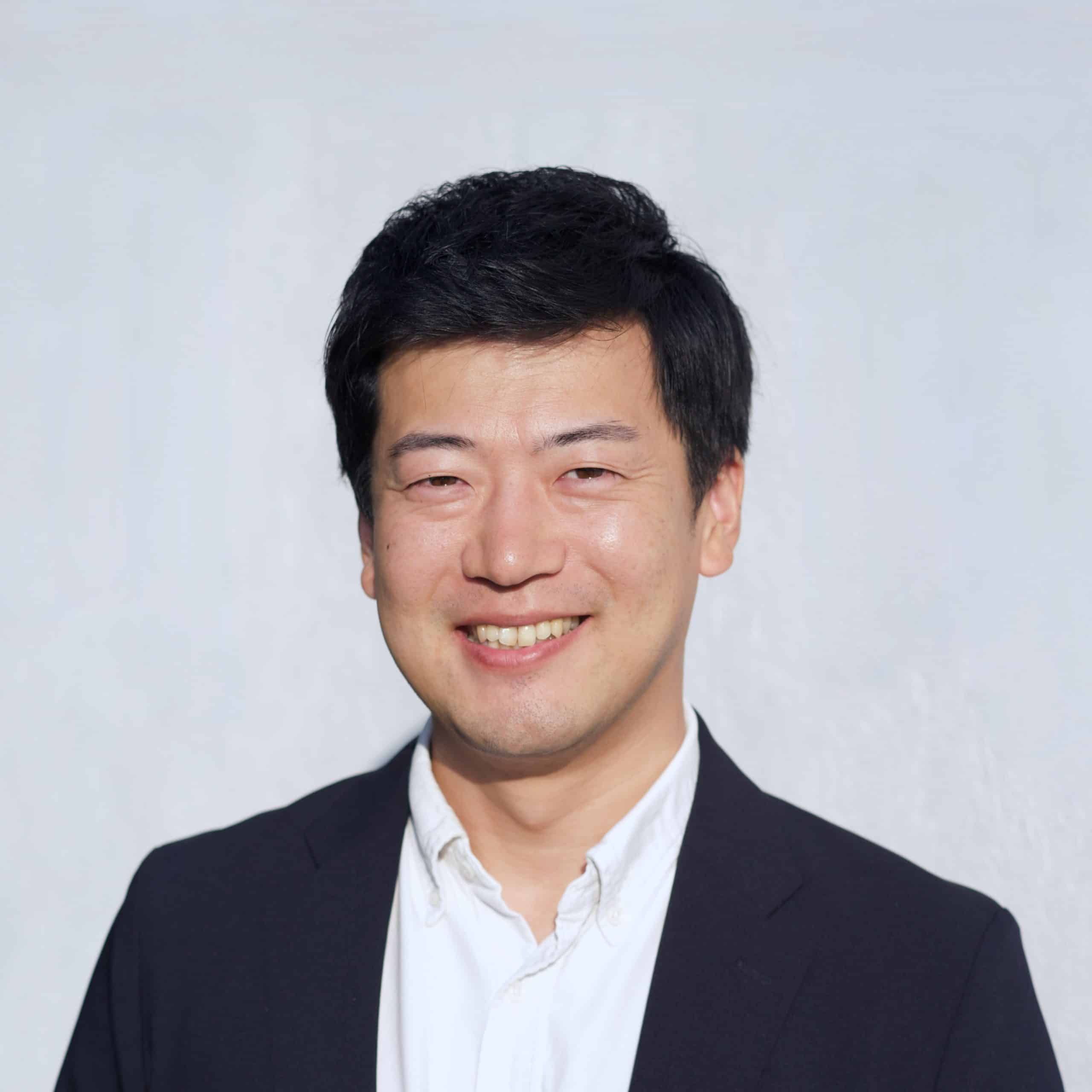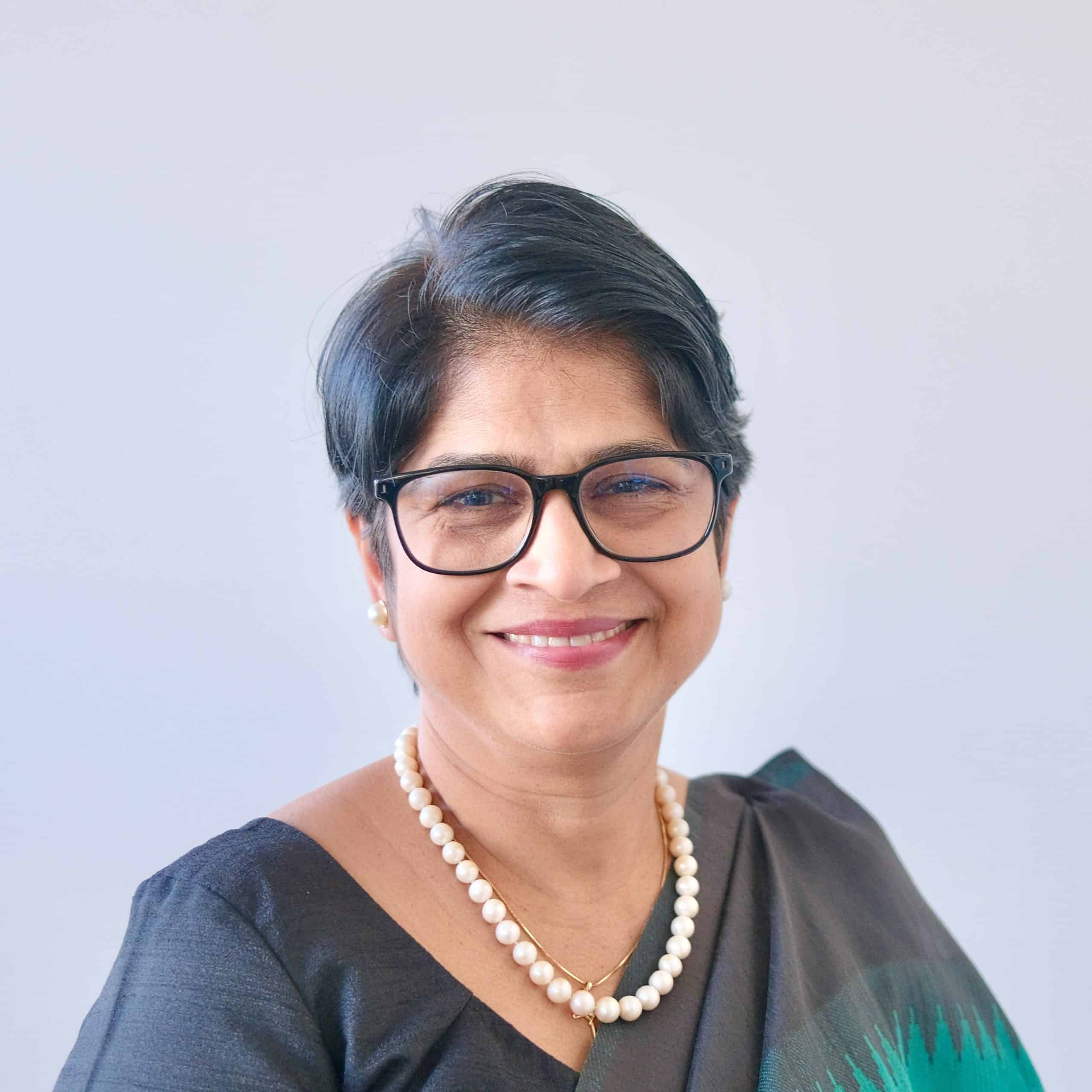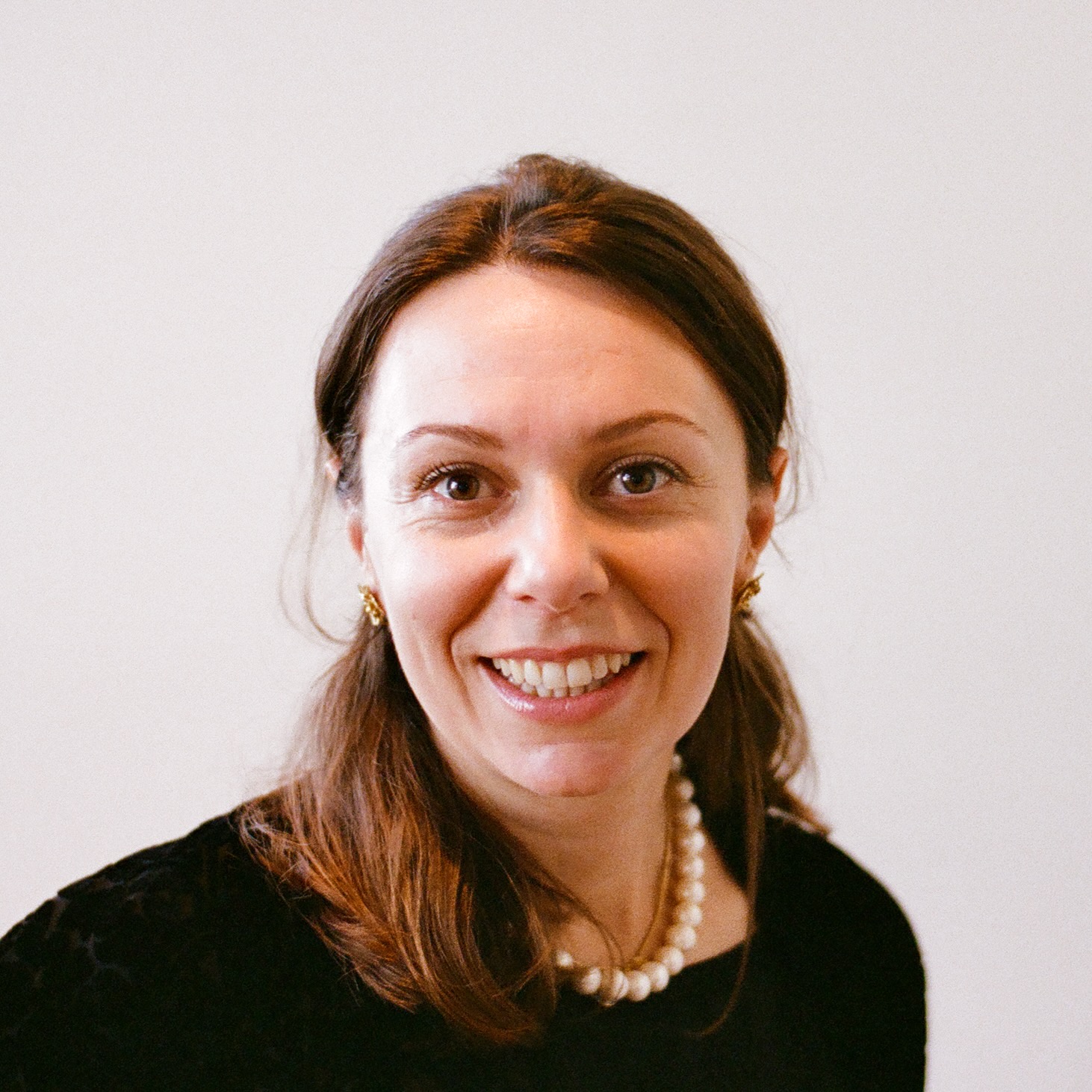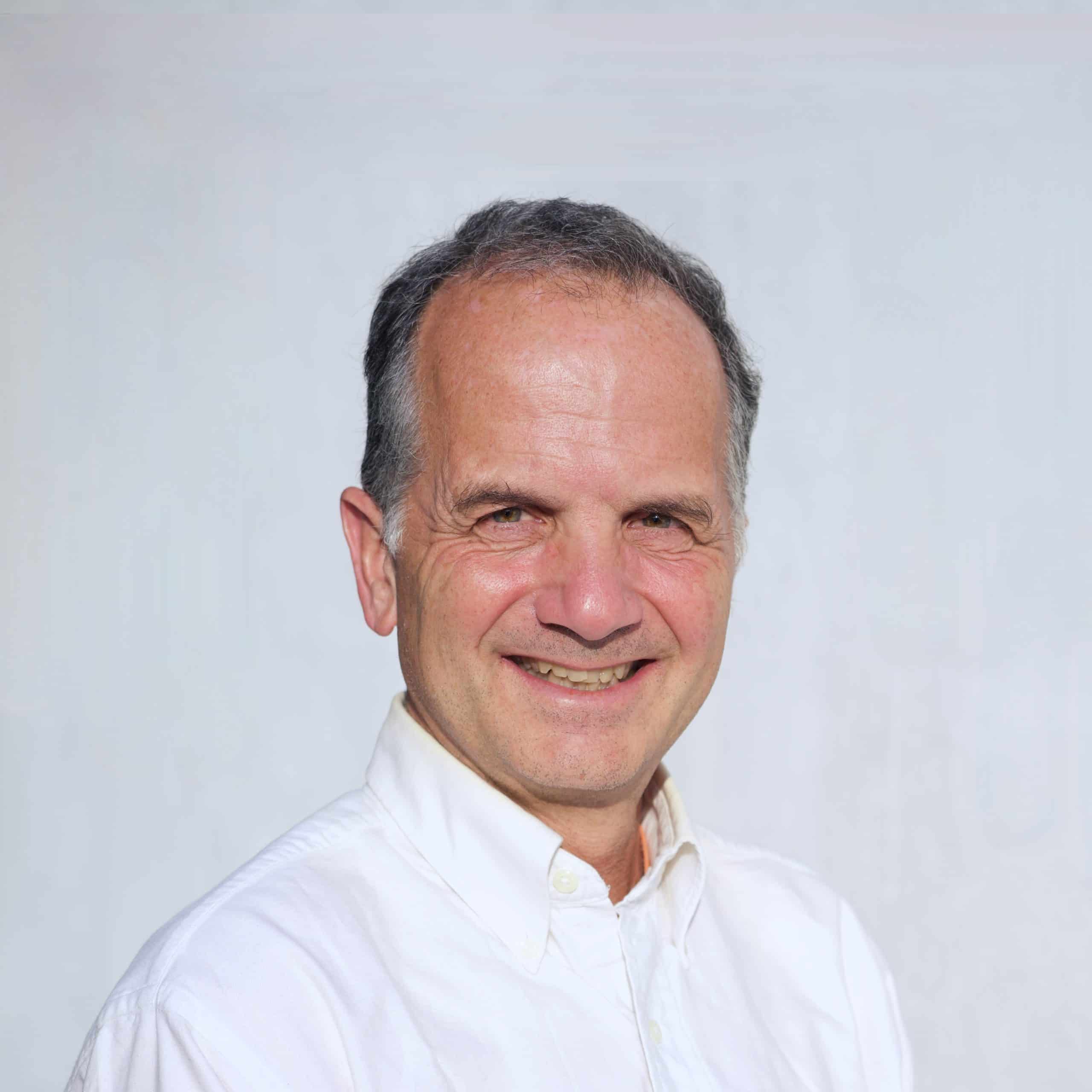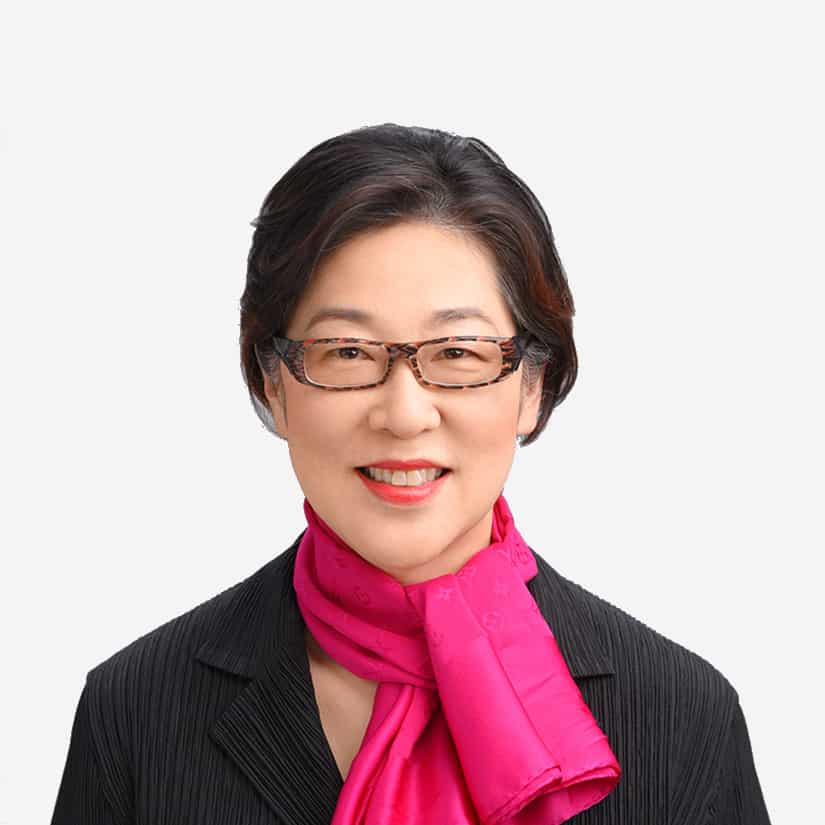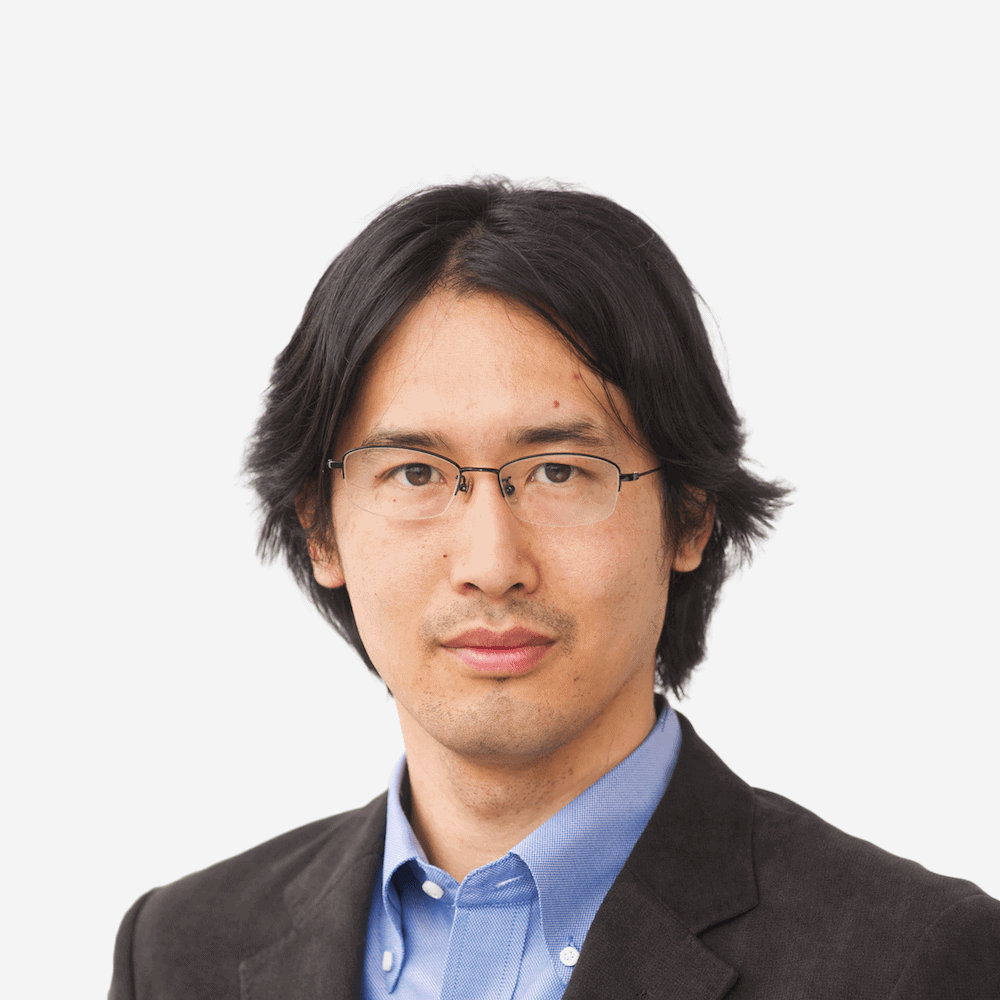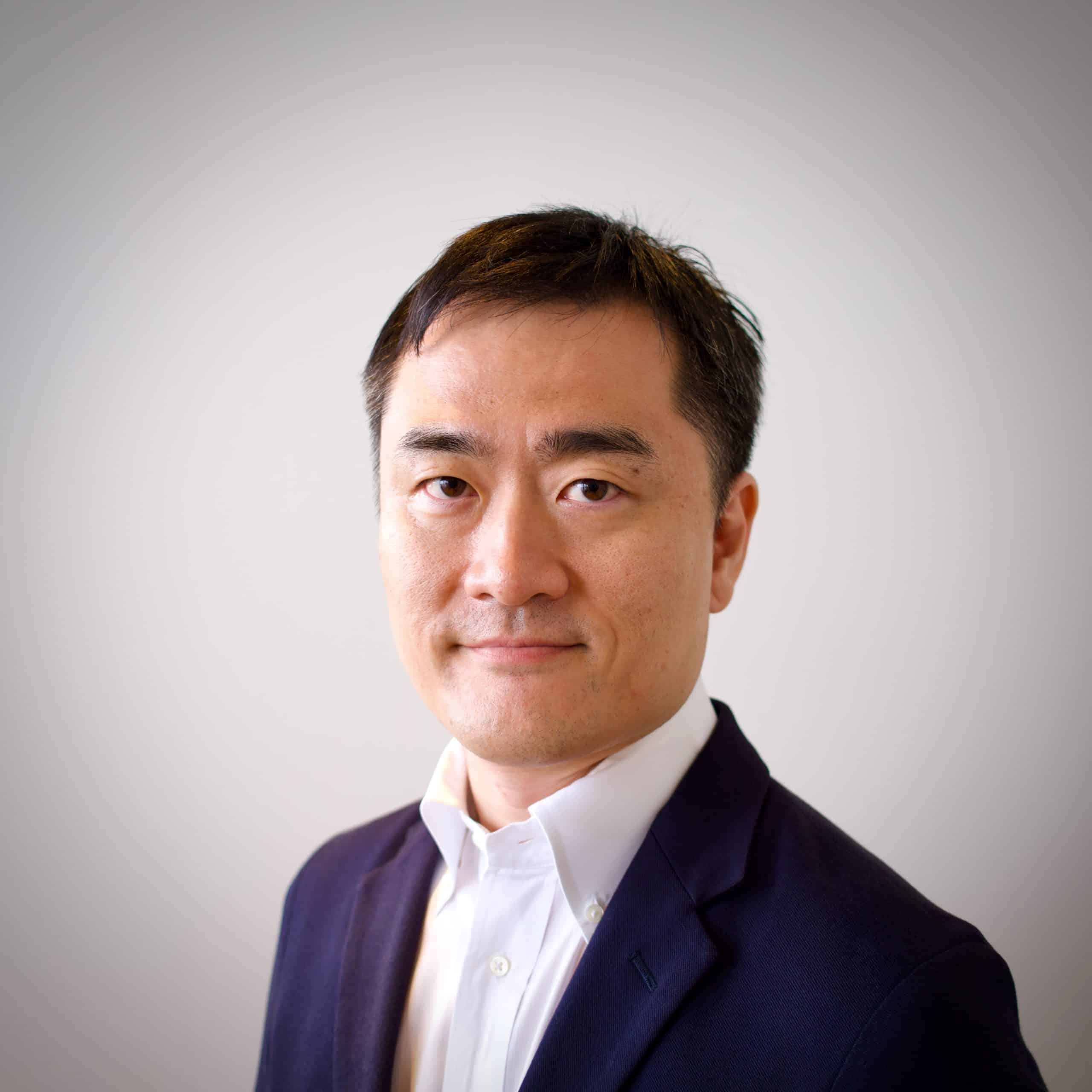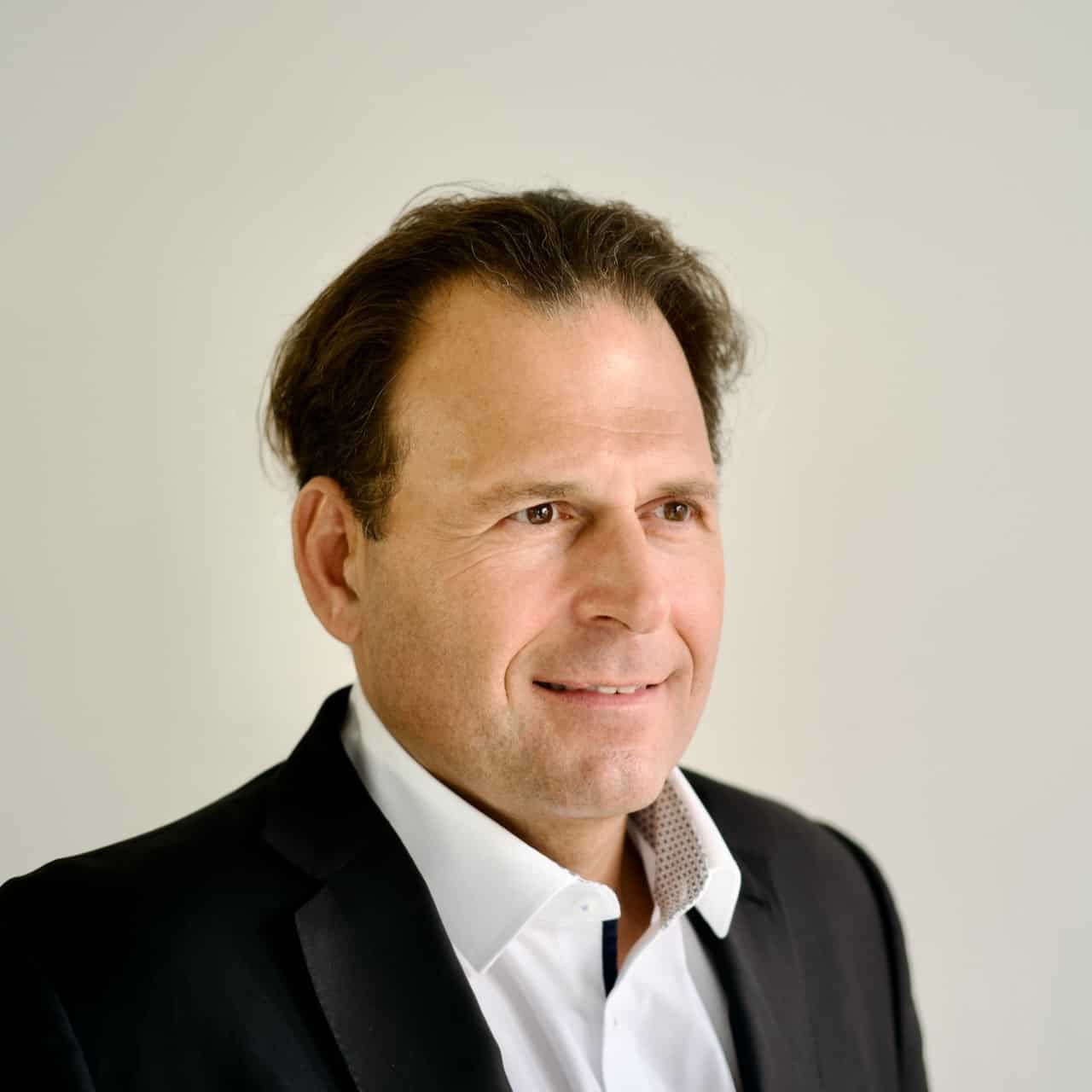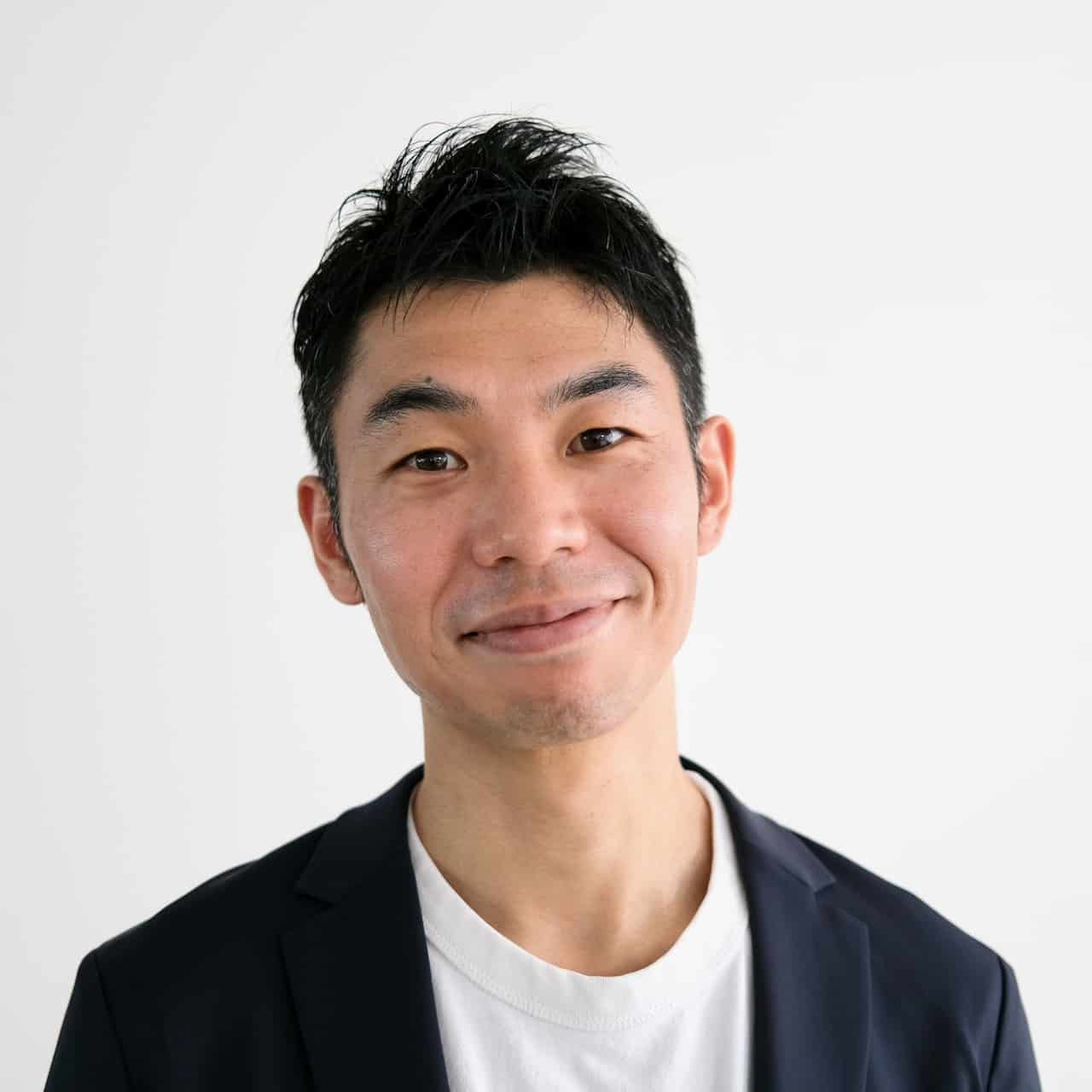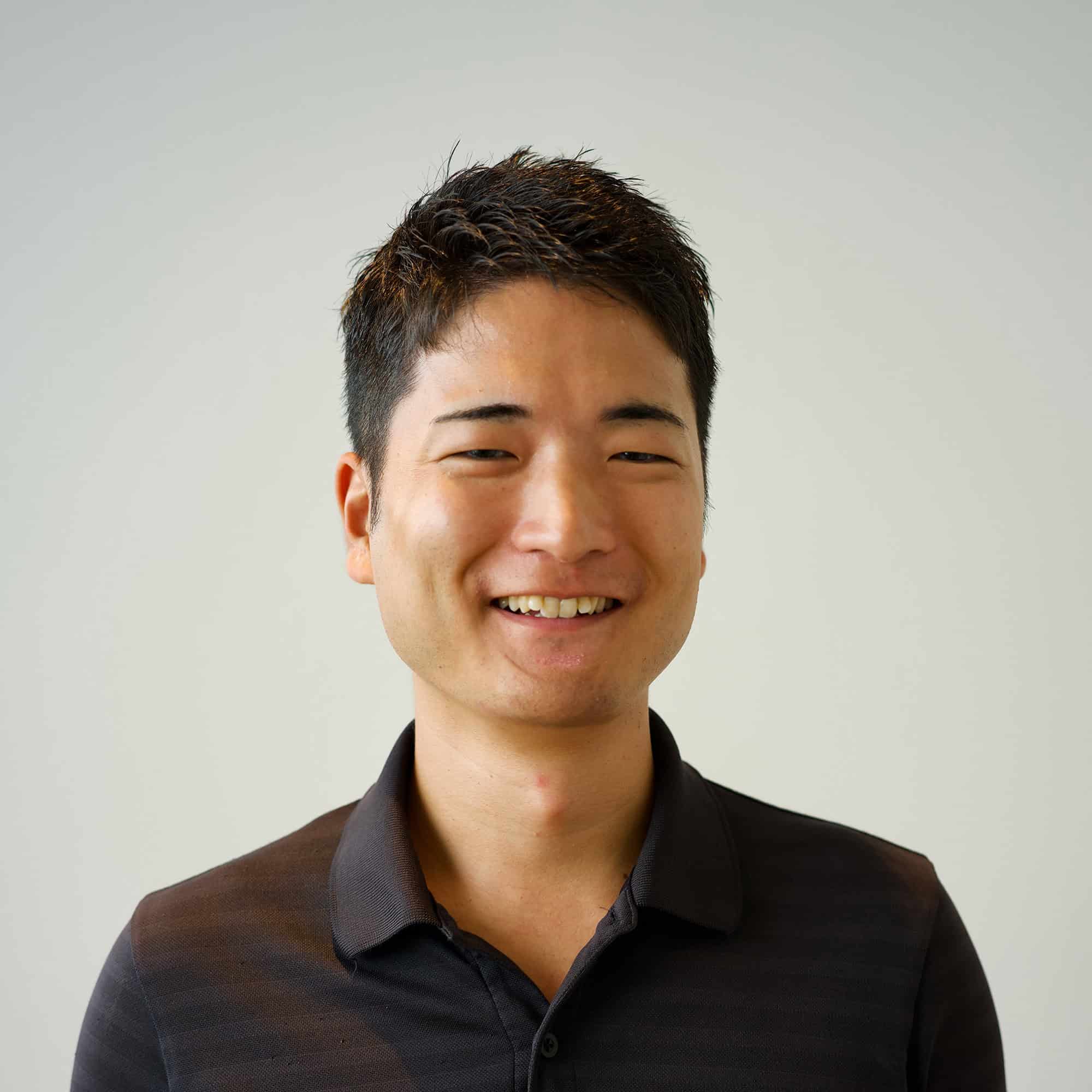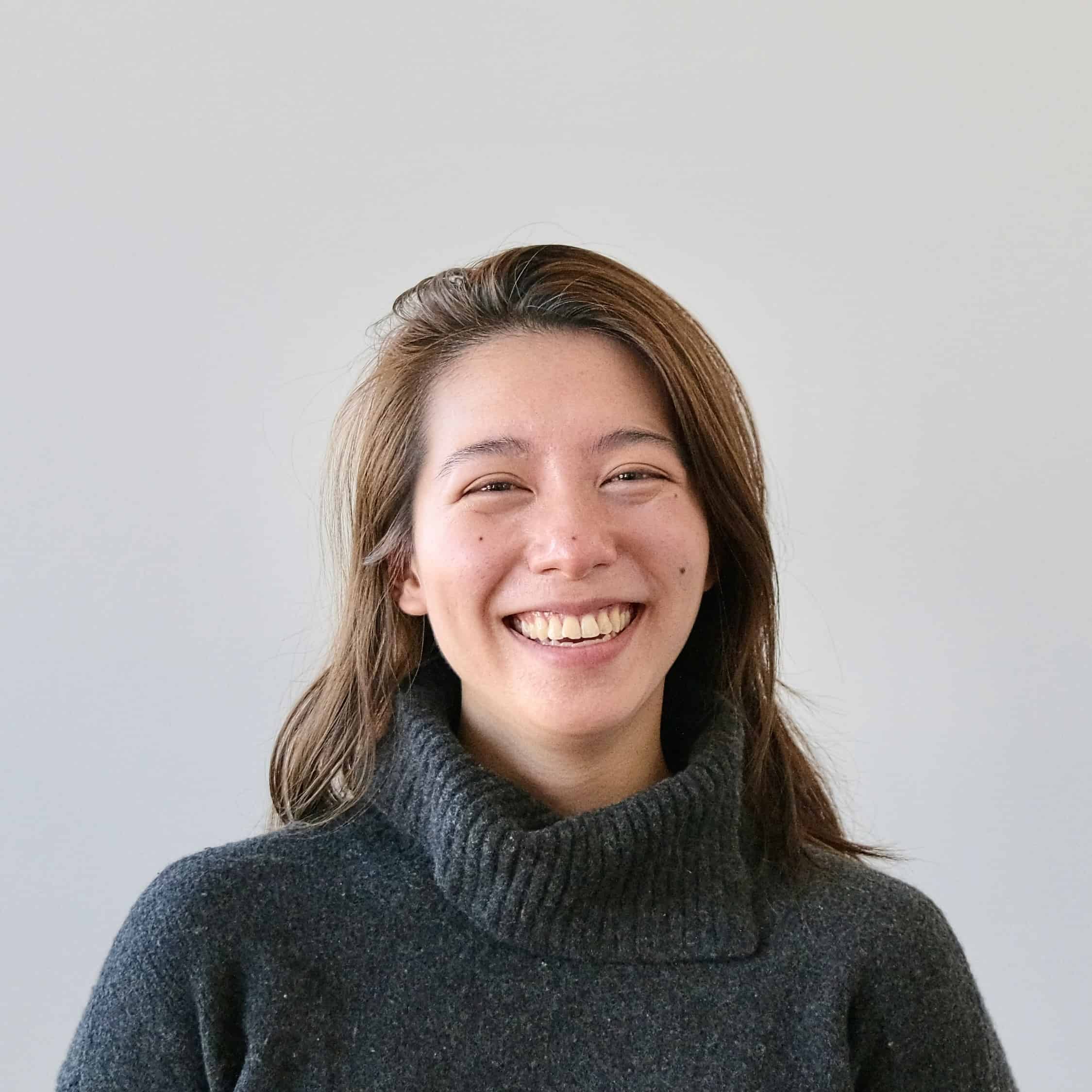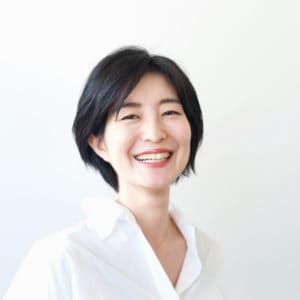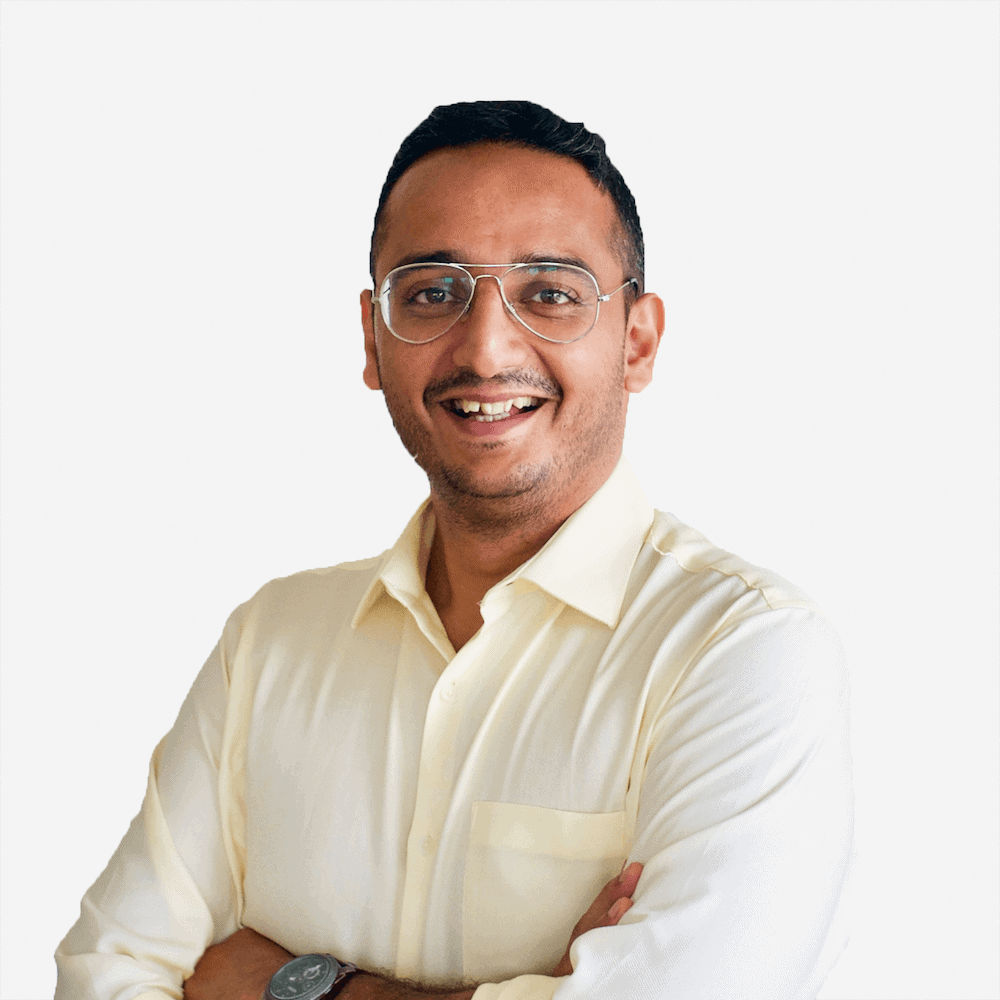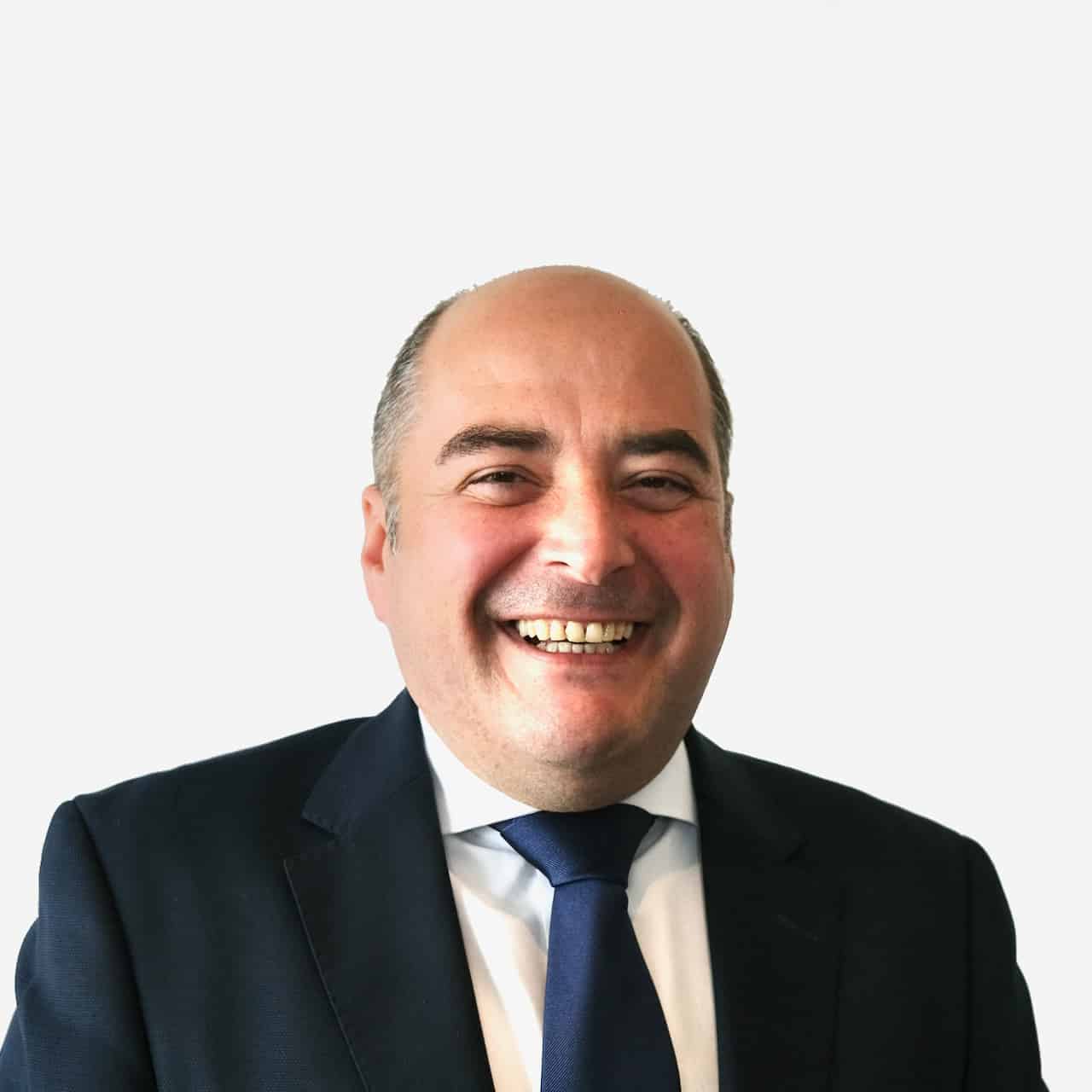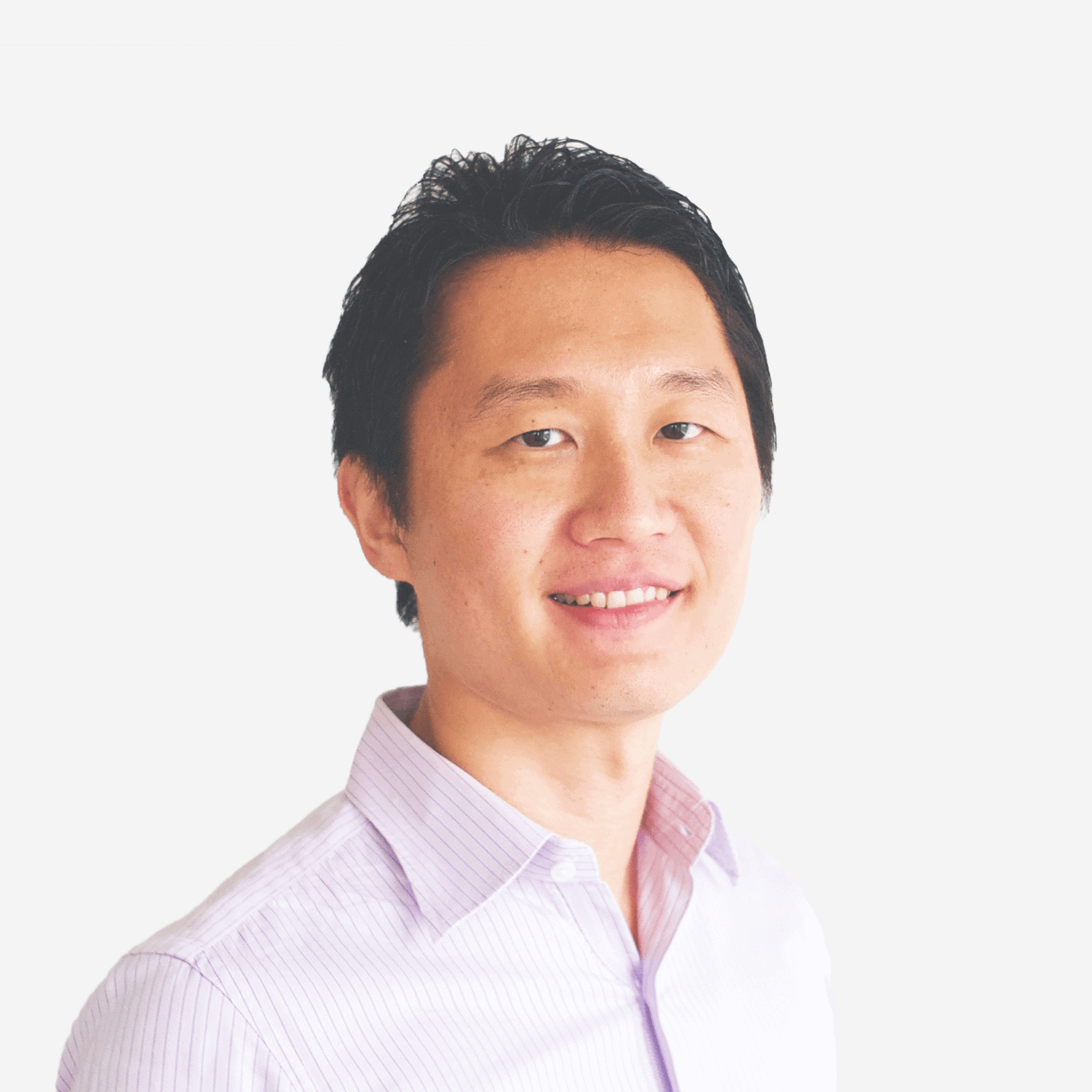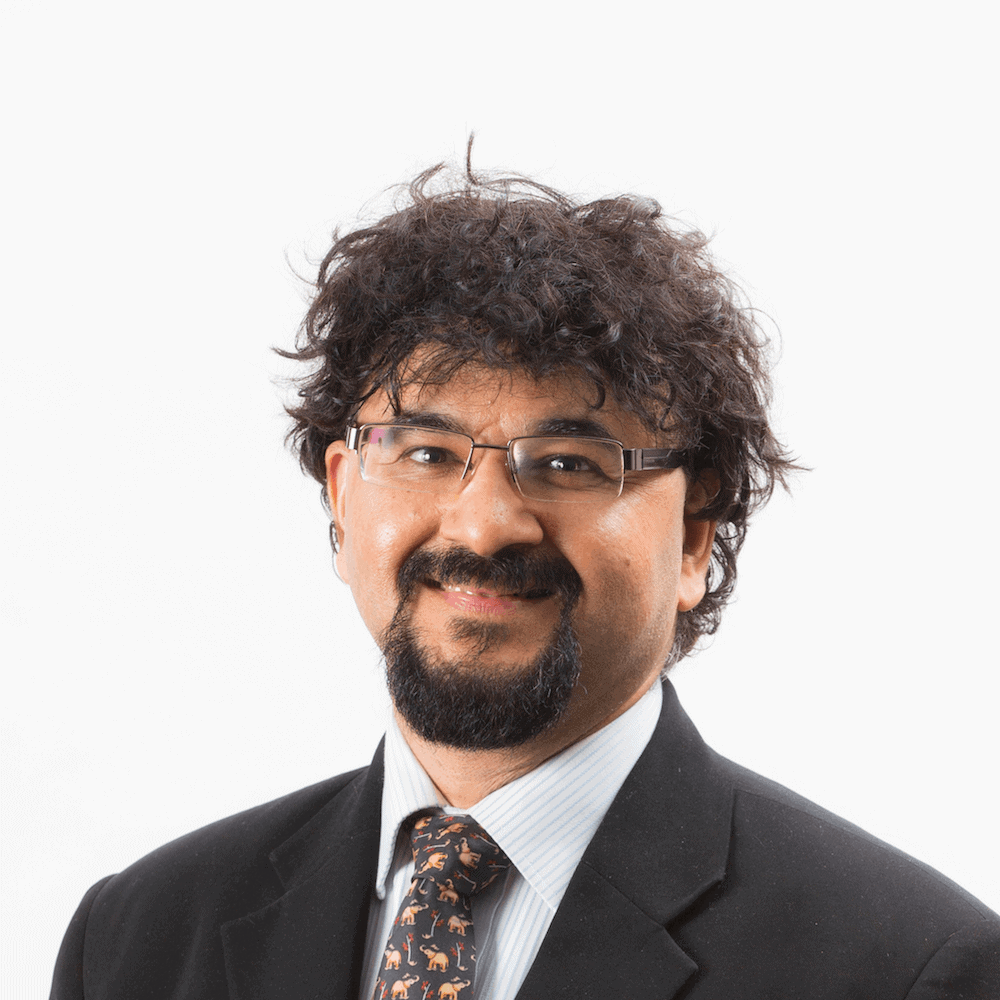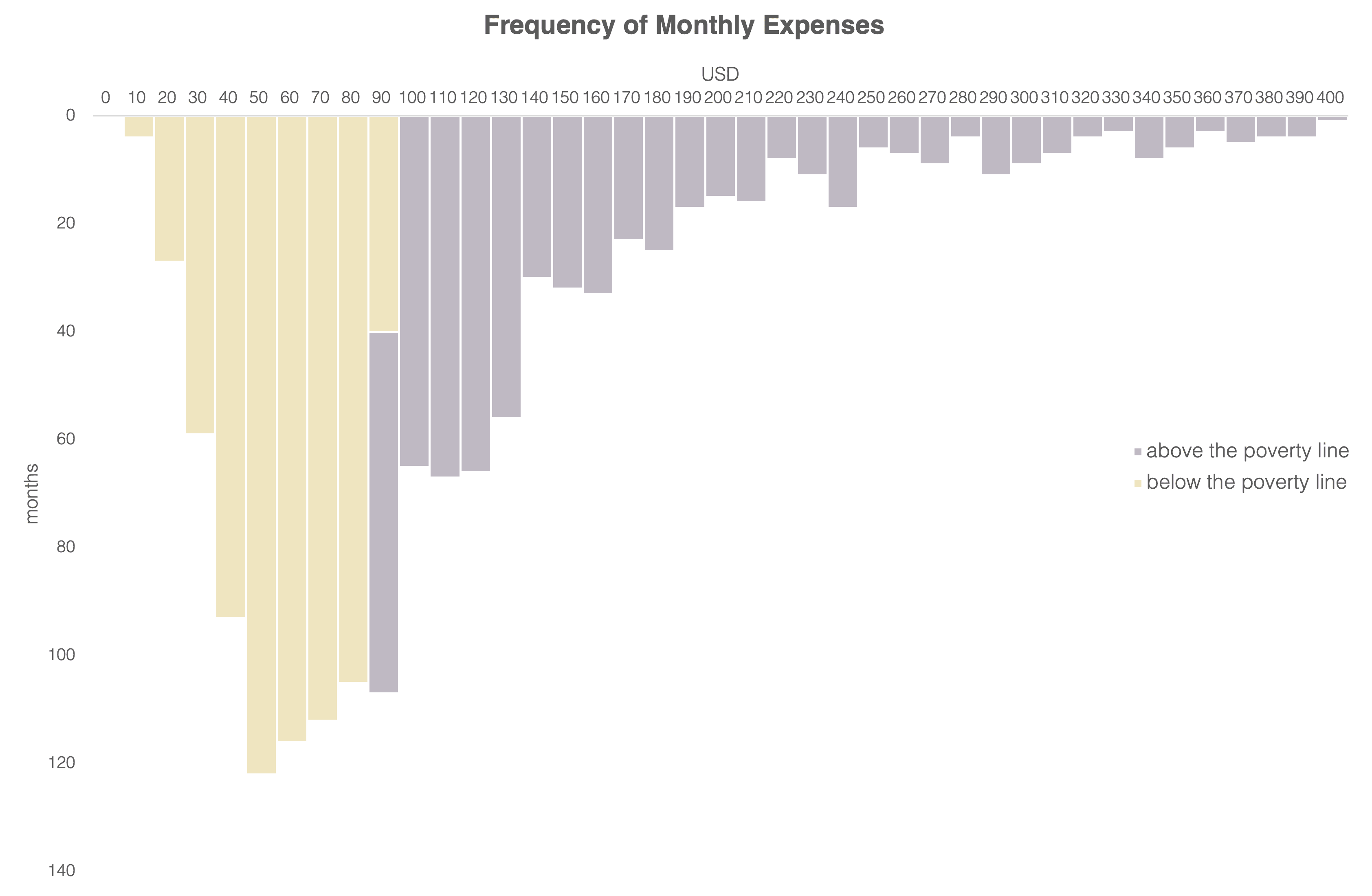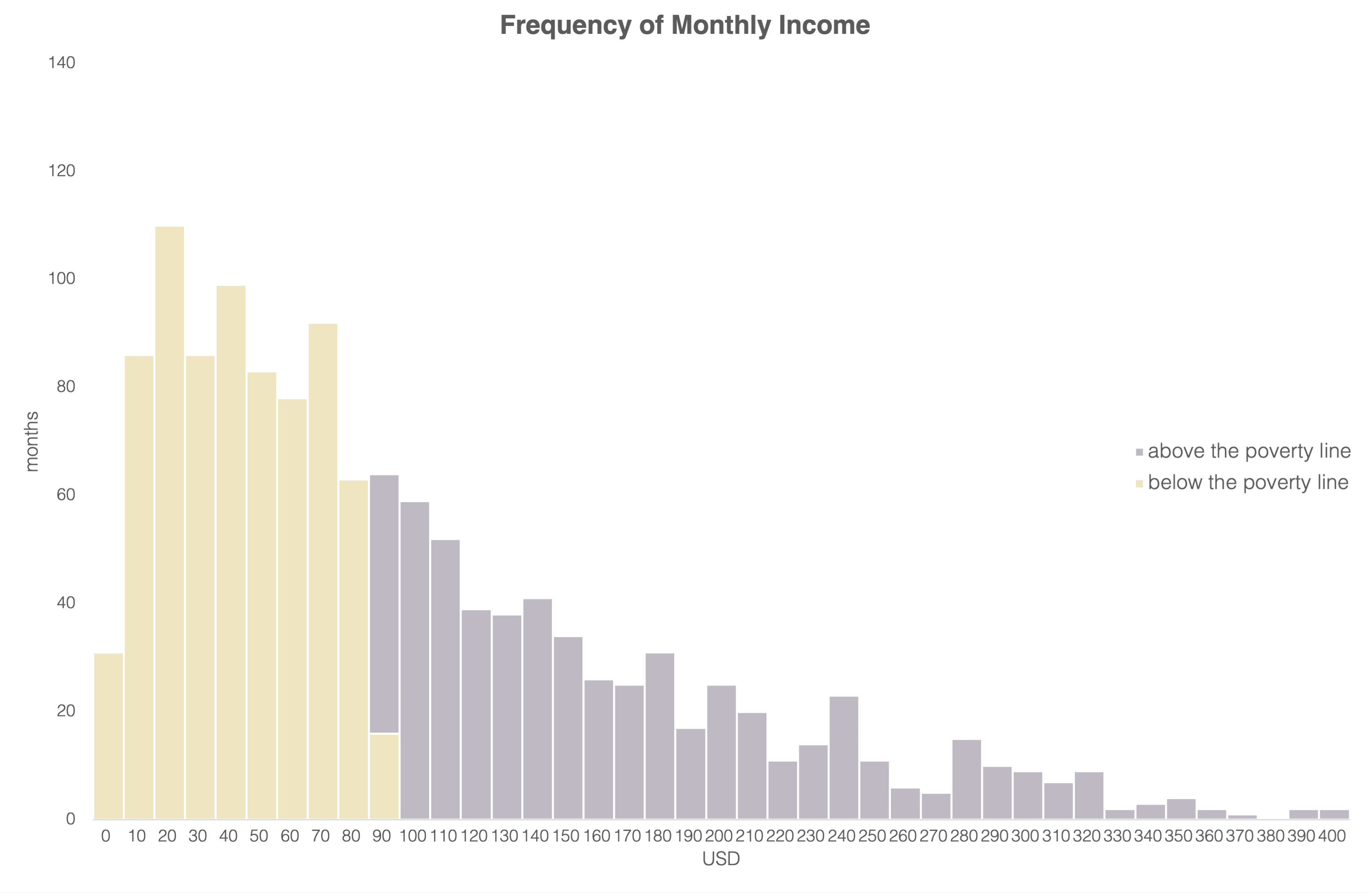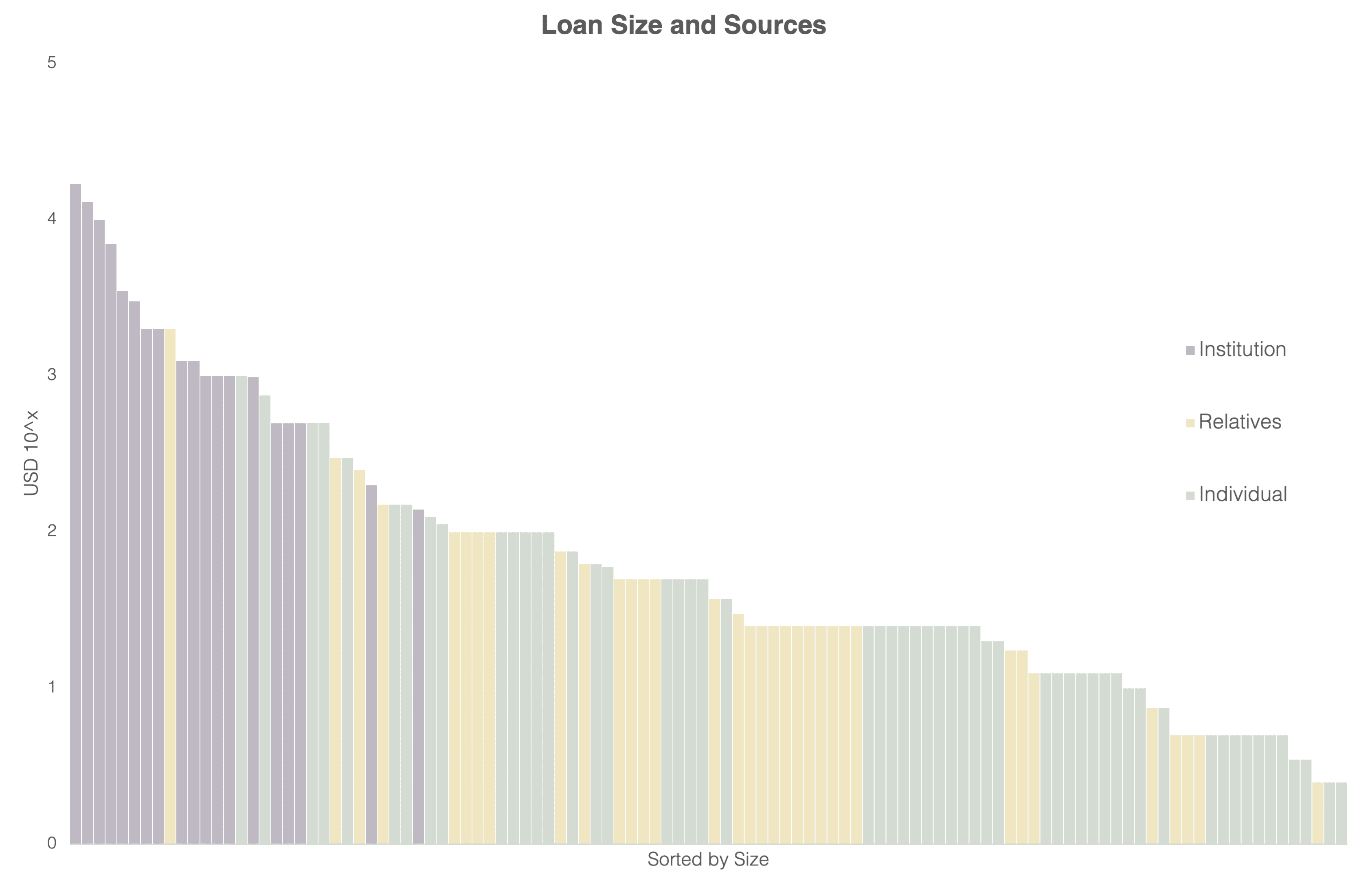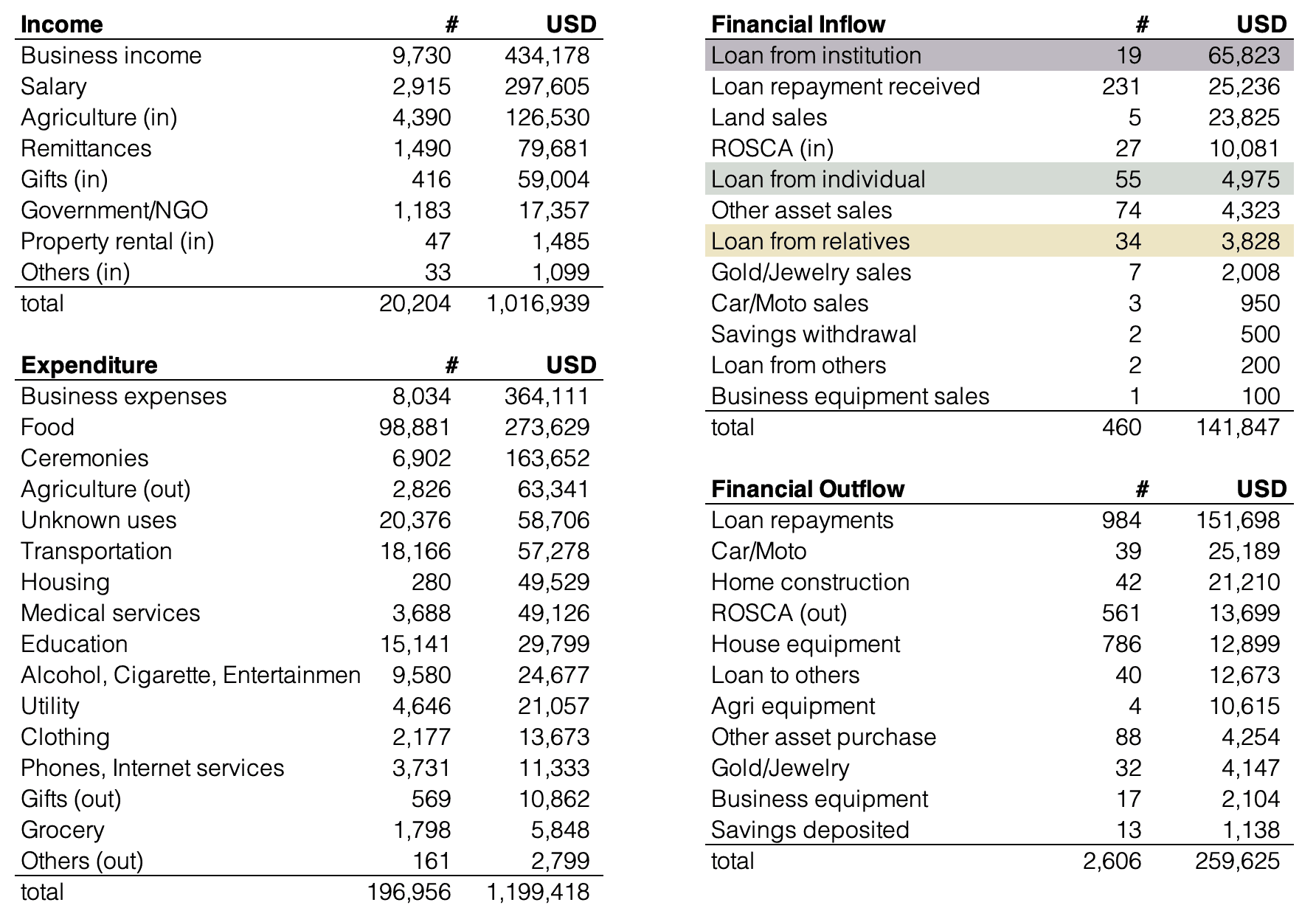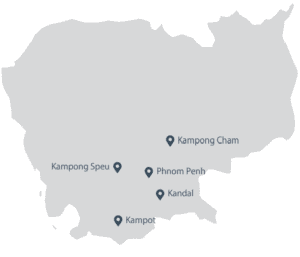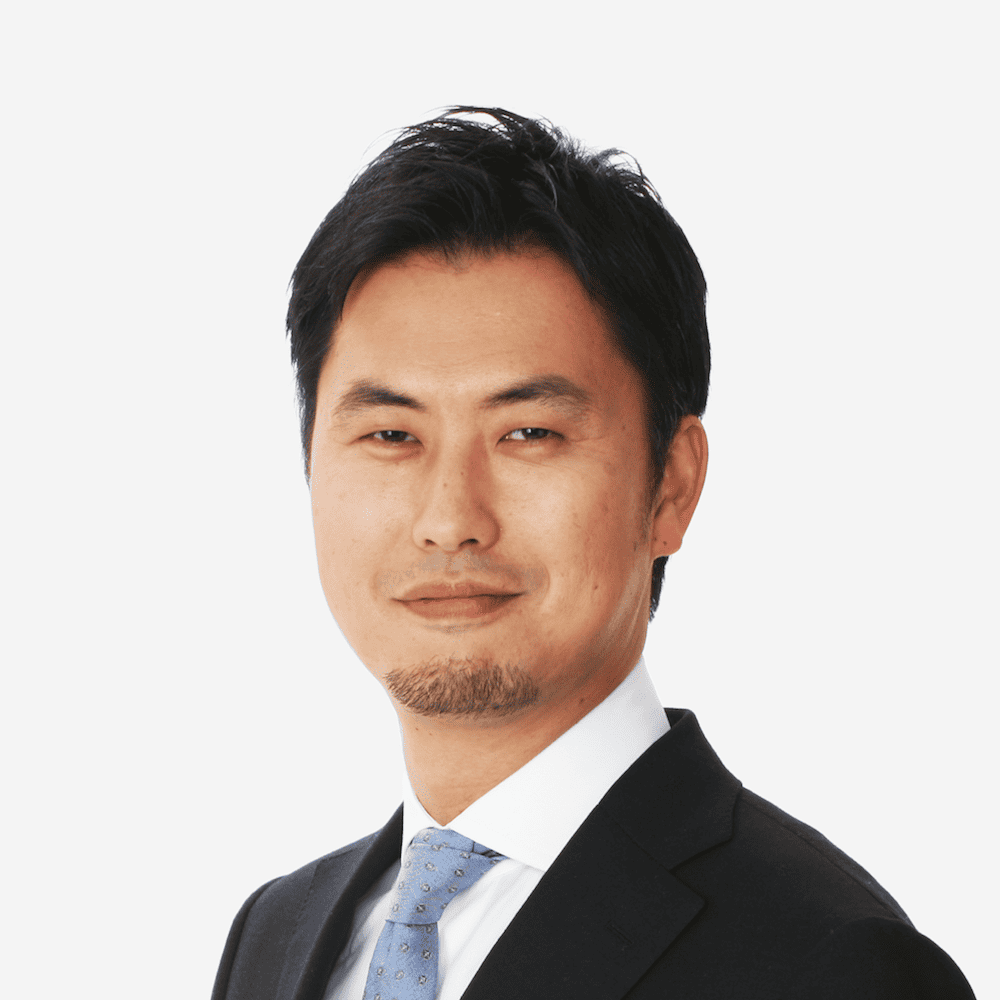
Our dear friend and Outside Director Mangyo Kinoshita passed away on July 9, 2023. Mangyo was an extraordinary lawyer, friend and human being. In this tribute, Taejun Shin reflects on Mangyo's life and his contributions to Gojo.
Mangyo before I knew him
Mangyo was born in 1976 in Komatsu City, his mother’s hometown, where she had moved to be closer to her family during childbirth. His birthday, October 2nd, shared with Mahatma Gandhi, is one day after mine. As a child, he lived in the west area of Tokyo.
His name, Mangyo, is unusual in Japan. It was chosen by his grandfather, father, and uncle, who preferred distinctive names. The ‘Man’ part was initially planned to be written with the character 萬, but due to registration restrictions, it became 万. In Japanese, 万 (man) means “ten thousand”, and the second character of his name, 暁 (gyo), means “daybreak” or “dawn”. Mangyo’s own interpretation of his name was that “the sun always goes on rising, over and over”.
Mangyo's name was indeed memorable, and he was very grateful for it, although he found it cumbersome to explain his name when ordering at places like Starbucks (where he went by Ken).
To his father, Mangyo owed his unique name and his interest in the legal profession. His father, who did not often discuss work-related matters with his son, first learnt of Mangyo’s connection with Gojo and me when I appeared one evening as a guest on a radio programme which he was listening to. Mangyo’s father sent a message to his son: “I was very impressed by this person.” Imagine his surprise to discover that his son was already a board member of Gojo. Looking back, I’m thankful to have appeared on that radio programme, even if only to have helped Mangyo rise just that little bit more in his father’s esteem.
After excelling through elementary and middle school, Mangyo dedicated his three years in Keio High School to American football. His enthusiasm for American football started in middle school, when he watched a late-night TV program showing an NFL game. He then focused on applying to high schools with good American football teams.
In high school, he aimed to consume 6000 kcal daily to gain weight for the sport, but only managed to reach 80kg at 185cm. Thus, upon advancing to Keio University, he quit American football and began pursuing law.
Though he didn't study much in high school (which led to his enrollment in Political Science instead of Law), he studied hard in university, eventually passing the bar exam while still in school—a rare achievement at the time.
After passing the bar exam, Mangyo took a gap year in the US, spending most of his time in New York, living with a local Japanese artist and as a lodger and cat sitter. He fondly remembers his time in New York City, and the struggle of working his way up from nothing. Later on, when he trained in the US as a lawyer, he returned to New York, working in an office building overlooking Times Square.
Upon returning to Japan, he began his judicial apprenticeship, where his exposure to social issues at a law firm involved in the Hansen's disease litigation made him ponder the importance of social engagement. He ended up at Paul Hastings, a firm known for its pro bono commitment.
The one who attracted him to pro bono work was attorney Tsuyoshi Dai, a pioneer among Japanese pro bono lawyers, who sadly passed away in September 2022. I remember well how shocked Mangyo was at his passing.
"Tsuyoshi was amazing until the end. Even a week before his passing, he called me concerned about someone else's well-being," Mangyo told me.
Mangyo and Living in Peace
When Mangyo transitioned from Paul Hastings to O'Melveny & Myers, he began interacting with members of Japan's NPO Bank. During this period, financial services were starting to gain attention in Japan as a means of solving social issues, following events like Grameen Bank's receipt of the Nobel Peace Prize. Mangyo was the one advising these NPO Bank members on how to overcome regulatory hurdles and conduct business.
I founded Living in Peace (LIP) in 2007, and from 2008 we began thinking of creating Japan's first microfinance investment fund. A member of our team attended a meeting of the NPO Bank and met Mangyo in September 2008. We formally decided to embark on the creation of the microfinance investment fund and met Mangyo in January 2009 at O'Melveny & Myers' office in Meiji Yasuda Life Building.
At our first meeting, Mangyo warned us that it would be really difficult to overcome the regulations to create a fund as a non-profit, and we might be better off not trying. However, we were serious and determined to make it happen. Music Securities, a crowdfunding platform for social good, decided to participate, and we started the project together. Not only did Mangyo personally assist us, but he also facilitated support for our case as a pro bono project at O'Melveny & Myers, involving a few attorneys.
At the time, and probably even now, LIP had a really diverse group of people, mostly young professionals with 2-5 years of experience, each with their own area of expertise. Looking back now, as an older man, it was quite a risky endeavour. Meetings were filled with drama; I even once almost tore up a contract in a fit of anger (which would have accomplished nothing), and we had long discussions from 20:00 to 23:00 every Saturday, followed by drinking until 5 in the morning. We were young and reckless.
In this group prone to incidents and accidents, Mangyo was our only voice of reason. There were various issues with the regulations on selling the fund. For example, although we as a non-profit could create a fund, we couldn't sell it. But if no one invested in the fund, we couldn't move the business forward. We tried to circumvent regulations and attract more investors, but Mangyo was the one who drew the line, telling us what was okay and what wasn't.
Having spent 9 years as an entrepreneur, I now realise how important it is to comply with financial industry regulations. If Mangyo hadn't been there, we might have messed up somewhere and the project could have been finished. In September 2009, the first fund was successfully launched. It was the first microfinance investment fund in Japan’s history. O'Melveny & Myers made a beautiful book containing all the contracts and documents from that time, which I regret losing due to my carelessness.
Our relationship with Mangyo didn't end there. For a long time afterward, he supported Living in Peace as a Board Member. His involvement was always at arm's length, but he would step up decisively in high-risk situations.
Mangyo after founding Gojo
In September 2012, thanks to the activities of Living in Peace, I participated in Summer Davos. I was 30 at the time and determined to decide on a startup idea before turning 31. In the end, I decided to create the private-sector World Bank. Yes, though many people don’t know it, Project Gojo started in September 2012. In November, I informed my employer, Unison Capital, of my intention to resign and began preparing for the startup while working.
One of the people I reached out to as a co-founder was Mangyo. I asked him to co-found the business with me in March 2013. He seemed surprised, as he hadn't expected me to make such a proposal. Even two months before his death, he was still asking me why I had invited him.
Around that time, Mangyo had a plan to start his own law firm, southgate (it’s not a typo. The firm name is written in a lower letter). He believed he couldn't continue the same business for 10 or 20 years like entrepreneurs, but he could always support people who had such a desire.
So, his refusal was natural. Considering the later success of southgate, I think it was the right decision. However, my relationship with Mangyo continued.
Like many other startups, the early days of Gojo were messy, but the most difficult part was when the first team disbanded. Although several people quickly pulled out, Mangyo was the one who said, "I still believe in you, Taejun. If you continue, this business will be fine." I can't express how much his words saved me at this time when I was losing confidence in myself.
After a few more adventures, I ended up founding the business with Tsuyoshi Nagashima and Sanjay Gandhi. Before Tsuyoshi joined, Mangyo supported the legal work needed for the company registration as a pro bono project at White & Case. Looking back now, I think it was amazing to receive pro bono support for a company that hadn't even been founded yet.
Photo taken in 2014: Form left, Tsuyoshi, Sanjay, Taejun, Renuka, Sovann, Praachi, Yoko, Mangyo, and Nagai sensei.
Legal affairs at the time of a company's establishment are extremely important. Any early missteps will come back to haunt you later. Without carefully designing the structure of the company at that time, we couldn't have established Gojo's highly unique capital policy, such as the Satyagraha Partnership.
One year after founding Gojo, in 2015, Mangyo established southgate. It's usually tough for a boutique law firm to earn revenue when it's just getting started, but southgate quickly gained clients and started turning a profit. I initially thought I would have to introduce clients to Mangyo, but any need for that disappeared in an instant.
The reason is clear. It wasn’t due to Mangyo's legal acumen (although of course, Mangyo was a top-notch lawyer in terms of technical skills). Mangyo himself often said, "There are plenty of lawyers who are more technically skilled than me." But he had charm, a vision, sincerity as a person, the ability to build a team, and the ability to empathise with people and connect with them.
Looking at Mangyo, I'm reminded of Marvin Bower, the businessperson I respect most and the de facto founder of McKinsey. McKinsey's consultants say, "Marvin was not an outstanding consultant." But no one could match him in terms of embodying and adhering to the company's values, and during Marvin's lifetime, McKinsey's people were always thinking, "What would Marvin say?" I guess this illustrates the difference between an outstanding professional and an outstanding leader.
When I first met Mangyo, he was still a lawyer focused on his own career, who was adept at defending his own reputation and staying out of trouble. I think his ability to be a powerful champion emerged after the establishment of southgate. Mangyo went from being a socially conscious, highly competent corporate lawyer to the founder of a professional firm. He became a lawyer who gave a sense of reassurance that he wouldn't run away but would fight to the end for his clients.
In the beginning, Gojo struggled with fundraising. At that time, there was virtually no recognition of microfinance as a business, and there was no momentum to invest in startups operating in developing countries, so no matter how many times we approached corporate investors, they wouldn't even entertain our idea. Sometimes, we couldn't even get appointments.
But we couldn't let the business stagnate. We needed funds to grow the business, so we decided to raise money bit by bit from individuals.
Mangyo helped us here too. One of the first people Mangyo introduced to us was Mr. F, a famous M&A financial advisor. At the prearranged lunch meeting, he started off by saying, "I decided to invest as soon as I heard about it from Mangyo, so tell me more."
Meetings with potential investors introduced by Mangyo were always like that. By the time they were talking to Mangyo, they had almost decided to invest, and meeting with us felt like a confirmatory process. Incidentally, since Gojo’s establishment, there has not been a single investor who was introduced by Mangyo and didn't end up investing. Anyone involved in finance, even slightly, will understand how extraordinary this is. Normally, such a thing is unthinkable.
I later asked Mangyo what kind of magic he was using. This is what he said he told the potential investors at the time.
"I think this team will definitely succeed in the long run. I've been observing Taejun for a long time, and he has never wavered and has always corrected his course even when he fails.
As this is a young team, I think there will be regular failures. Therefore, if the timing of the investment is bad, there is a possibility that the invested money will be lost. However, I think the likelihood of things improving over the long term is much higher.
But even if the money is lost, there is no doubt that it stood for the benefit of the world. I'm also going to invest, won't you?"
Mangyo referred to my resilience as the "Taejun = U.S. stock hypothesis." In other words, he was fully aware that I would periodically make mistakes but believed I would rise up again from there.
The people Mangyo introduced not only provided us with money but often ended up developing deeper relationships with us. The aforementioned Mr. F was no exception.
After we raised 1.2 billion yen from individuals in Series A funding, we were finally in a position to negotiate with corporate investors. By this point, three years had passed since our establishment. It was good to have raised 1.2 billion yen from individuals, but if we couldn't raise funds from corporate investors, our business wouldn't grow further. We were filled with a lingering fear.
The term sheet from the first venture capital firm we encountered was so bad it was disheartening. The next VC, who took us very seriously, offered a valuation in their term sheet that was about 30% lower than what we had received from individual investors. Moreover, many of the individual investors who invested in us at the time were able to take advantage of angel tax credits, with some getting a 40% refund on their investment.
"After taxes, for many individuals, this would be an up round, and if we can raise funds from corporates at this time, our business will start to improve, so isn’t it okay to accept this?" My colleague Natsuki and I were thinking. When we brought this to the board, Mangyo was adamantly against it. If this increase in capital was to be made, he said he would have no choice but to resign.
Indeed, Mangyo's approach to communication was gentle in interface but his style was rather hardline, even fundamentalist (I have heard this same view from Daichi Konuma of Crossfields, a non-profit where Mangyo served as a long-time board member). His assertion was simple, "Even if it's temporary, any fundraising that harms the interests of existing shareholders is unacceptable." This was his plain and indisputable logic.
Mangyo was the kind of person who could voice such an opinion despite understanding our struggles with fundraising. It was quite understandable given he had the mindset of an athlete who had put a great deal of effort into achieving results in his sport. He'd say something along the lines of, "Well, you folks are working hard, but it's not good enough at all." At first, Natsuki and I, who were also involved in sports, thought, "How can you say that?" But then we pulled ourselves together and continued our fundraising efforts.
After persevering in this way, we were able to raise funds without having to go through a down round when Dai-Ichi Life became our first corporate shareholder. Since then, "Avoid a down round at any cost" has become a critically important policy for us in fundraising, and we've managed to keep fundraising without facing a down round. I wonder what would have happened by now if it weren't for his stern words back then.
After the fundraising began to settle down, the next thing we did was to look for legal counsel. Until this point, Mangyo, who was an auditor, had secretly been reviewing our fundraising contracts for us.
Again, this is quite like Mangyo, who strongly believed that he should not ask his own law firm to handle the work as he was involved as a board member. Prioritizing such professional ethics over whether he would make money is characteristic of Mangyo. That's why I believe he was trusted.
And while searching for legal counsel, Mangyo set a very high bar. At that time, he was saying this:
"Honestly, the problem is that I can't find anyone in the market who I would like to rely on. There are many people who can do M&As in English, but almost all of them represent large corporations, and there are not many who understand M&A and can handle startup-related matters (even fewer if it is done in English). Also, hardly anyone understands the keywords that come up in our conversations, such as impact investment. Now that Gojo is seen as a relatively large startup, I don’t want to choose a lawyer who would support us just because we are growing. Also, the minimum standard required of Gojo's team members is high, and I don't want to compromise on the selection of external lawyers."
The only person Mangyo recommended saying, "It would be great if this person could do it," was Mr. H. He understood M&A, knew about startup businesses, was interested in social issues, and his English was excellent. Mangyo had been taking note of him for a while, thinking, "This is a prominent person."
I remember well the first time I met Mr. H, along with Mangyo, Tsuyoshi and Natsuki. It was in an office located in an apartment in Ebisu. During the meeting, Mr. H said, "If you work with me, I can help you emerge relatively unscathed from most incidents."
Hearing this, Mangyo reaffirmed his trust in Mr. H. That's because he was convinced that Mr. H met one of the most important conditions Mangyo had set for legal counsel: "Absolutely not running away even in the face of the worst hardship". We decided to work with Mr. H in about 2 hours that day. Since then, we have been really grateful for his support.
I think the members of Gojo at that time, including me, were a real mess. We were excessively abrasive, causing unnecessary friction with those around us. I think much of the reason we were able to manage the chaos of those early days was thanks to Mangyo, who was (again) our only voice of reason. Especially when I faced a difficult situation, I usually asked Mangyo to handle it. When our auditor faced a problem, the first person they would talk to was Mangyo, even though this is not meant to be the job of an outside director.
The members. In 2018. From left, Mangyo, Renuka, Tsuyoshi, Sanjay, Natsuki, Praachi and Taejun.
Among various stakeholder management challenges, the one where Mangyo really came to our aid was in the negotiations related to Tsuyoshi's departure. As the organization grew, it was time for our relationship with him to evolve as well. The tough part was that I liked Tsuyoshi and he was my friend.
I'm certain that if it had been just us in a 1-on-1, our final conversation wouldn't have gone well. It was ultimately settled smoothly because Mangyo, a practitioner whom we both respect, joined us in the discussion.
This is a bit of a digression, but Mangyo was actually a huge movie buff, to the point that he once considered becoming a movie director. His favorite films include The Blues Brothers, The Godfather, and The Shawshank Redemption. Among domestic films, he was fond of Koki Mitani's "The Gentle Twelve." In that film, he saw what he considered to be the essence of law. Namely, "when people earnestly debate, the conclusion usually settles in a reasonable place." Discussions in which he was involved would always arrive at such outcomes.
At the funeral wake for Mangyo, I unexpectedly ended up standing right next to Tsuyoshi. It was the first time I had seen him face-to-face since his resignation, four years ago. I thought to myself that this might also have been something Mangyo had planned.
Mangyo once shared that his most difficult decision was to propose to a colleague he had worked with for 17 years that they should embark on separate paths. The conversation went smoothly, and the two maintained a good relationship afterward. Although I had Mangyo to help me so much in difficult conversations, I feel sorry for Mangyo needed to handle this alone.
With Mr. Idei after a board meeting
From around the latter half of 2019, Gojo entered a new phase as an organisation. I think it’s fair that it began to be a more formal and professional organisation.
From around this time, Mangyo started to step back a bit. It seemed like he began to feel that we would be able to manage most things on our own. Nevertheless, in times of trouble, it was always Mangyo who stepped in. For instance, right after the start of the Covid-19 pandemic, we urgently needed to raise funds. Without fail, Mangyo was there to assist us during such times. And, as ever, anyone introduced by Mangyo invariably became a shareholder in Gojo.
As Gojo became relatively stable as an organization, southgate also seemed to have become established in its operations. At this juncture, Mangyo decided to step down from his role as the firm’s lead representative. It was another decision in keeping with Mangyo’s character, quite unlike in the typical firms where the boss lawyer tends to dominate. The goal Mangyo had in mind was to make the firm an organization that could operate without him.
Mangyo in His Final Days
After he stepped down as the lead representative of southgate, around the time his successors had started to get used to the job, Mangyo was diagnosed with cancer: pancreatic cancer— Stage 4.
It so happened that at the time of his diagnosis, there was an upcoming board meeting for Gojo, and he contacted us immediately after he left the hospital. As always, he spoke calmly. He plainly explained the average life expectancy at this point and the course of treatment to be undertaken. There was hardly any pessimism or agitation in his voice.
Instead he spoke of his gratitude for the time left to him, unlike his mentor Tsuyoshi Dai who had passed away so suddenly. There was none of the oft-mentioned five stages of grief (denial, anger, bargaining, depression, acceptance); he appeared to have accepted it right away. And with that acceptance of the situation, he was determined to do his best.
"Of course, it would have been nice to spend more time with my family, but everything comes to an end even if you want more. Rather, I believe it's important to appreciate what has been given, live each day, and candidly tell the people I value, 'I love you,'" he said.
Some colleagues were dismayed but I was relatively optimistic. Indeed, looking at the data, the prognosis for pancreatic cancer isn't good, but there are people who have survived, and I thought it wouldn’t be right to be downcast when Mangyo himself wasn't pessimistic. That was the kind of relationship Mangyo also wanted.
And initially, Mangyo continued his work as usual. In the early stages, the chemotherapy seemed to be going well, so my optimism grew.
However, after a while, even stronger chemotherapy resulted in no improvement. Mangyo also began to lose weight.
One day, I received a message from Mangyo in the same calm tone as always, "Actually, the situation is that I've now exhausted all measures." It was not until this point that I finally came to terms with his impending death.
In such situations, one begins to contemplate how to correspond. I hesitated to contact him, wanting him to cherish his time with his family, but on the other hand, I was caught in a dilemma, thinking that he would not appreciate such special treatment. As always, we continued with our usual work-related discussons.
At the last Remuneration and Talent Committee meeting that Mangyo attended (he was the chair), he strongly argued for my remuneration until the end. "It should be set higher," he would always say, which was at odds with my personal desire to set it at the median among Gojo members. This was the only thing I didn't heed from Mangyo.
When it came to money, Mangyo had a bit of a worldly side to him. He often enjoyed talking about making money, hobbies that cost money, and so on. However, there was never any unpleasantness in the way he spoke about these topics, which was one of the wonderful things about him. His mind was not trapped by money.
I remember our last Zoom meeting very vividly. It was a 1 on 1 meeting to discuss next steps after his potential stepping down as an Outside Director. For the first time, I saw Mangyo looking unwell and struggling. Yet, even then, once the meeting started, he was the epitome of calm. I marveled at his great spirit.
After stopping chemotherapy, Mangyo moved to palliative care in a hospice ward. Only 10 people were allowed in the ward, i.e., nine family members and his best friend, attorney Yasutoyo Jinnai. Mr. Jinnai was in charge of all the practical matters, such as settling Mangyo’s estate. We were also corresponding with Mr. Jinnai during Mangyo’s final days. The topic was investing further in Gojo despite his being on a deathbed.
From the day Mr. Jinnai found out that Mangyo had cancer until the day he passed away, he had been transcribing the Heart Sutra, one page a day. It showed how much he cared for Mangyo that a logical lawyer such as he resorted to prayer in this time of trouble. The Heart Sutra, which was placed in Mangyo's coffin at the funeral, had become a very thick stack of papers. The pain of fervently hoping for a friend's recovery, while at the same time, stoically preparing for his death, is unimaginable.
All the members of the Gojo sent letters to Mangyo in his palliative care ward, and Natsuki and I sent him a video. In response, Mangyo used some of his precious remaining time to send us a few thoughts. His former schoolmates seemed to have been continuously shooting videos to make Mangyo laugh. "It's weird to say 'do your best', so let's make him laugh," was their aim. The last video was reportedly one schoolmate’s impression of Mangyo.
He truly was blessed with friends. The messages we received from Mangyo were all about his gratitude for his good fortune in life, even up until the very end.
When asked what he was most proud of before his death, Mangyo answered, "my family and colleagues."
Towards his wife, he said, "There is not one thing I ever want her to do better. She's a strong person in tough situations, so she'll be fine even after I’m gone." He seemed delighted that after getting married and having children, he was able to see his sweetheart in a new role as a mother.
About his children, he said, "Their upbringing is for them to decide, so I hope each of them will grasp what they want to do and be surrounded by wonderful friends and colleagues. I hope they have no regrets in their life." Recently, one of his sons joined the American football club, and he looked forward to watching his practices.
While he did not yet consider his law firm large(though I think it's grown rapidly), he spoke of the joy he found in having colleagues who believed in his vision to create "a top-notch boutique firm specializing in cross-border transactions, staffed by Japanese and foreign attorneys."
He conveyed his love to those around him until the very end, and while in the hospice, he expressed his love for his family. He passed away on July 9, 2023. I received the news in the morning, dropped all my other work, and began writing an email to send to stakeholders.
His funeral was also remarkable. More than 1,000 people attended the wake and the funeral combined. Looking at the flowers placed there and the attendees shedding tears, it was clear how much Mangyo was loved by so many.
"The mark of the fully developed personality is to live each day as if it were your last, without hysteria, without apathy, without pretence," said Marcus Aurelius, the philosopher emperor of Rome.
The many words written in Aurelius's Meditations align perfectly with how Mangyo lived his life. I think it was an impressive way to live, right to the very end.
It is worth adding that Mangyo was not always the perfect human. When he was in elementary school, he was a bully, being a central figure in his class, and he still felt ashamed of that. In high school, during his American football days, he regretted giving up early in his final game. When the firm was first established, he regretted having snapped back at his friends who were attorneys at large firms, bragging about the greatness of such firms and belittling what small firms could do.
As mentioned earlier, he also had his worldly side. This applies to all great people, like Gandhi, Dr. King, and Nelson Mandela; almost no one is without fault. On the contrary, starting with Emperor Taizong and others, those who leave their names in history as great figures have committed some sort of sin somewhere (in Taizong's case, fratricide). I believe that what makes a great person great is not the absence of mistakes, but how they connect their errors to self-reform and self-discipline.
However, no matter how much I write about how wonderful his life was, and no matter how much I try to maintain my own peace of mind, the sadness wells up. It's too soon. I still want to shout out, "Why, why was he taken? This is ridiculous!"
After the passing of Idei-san, who was our first chairman, and then the passing of Mangyo, there is now no one left who knew Project Gojo from its inception in September 2012. This loneliness is indescribable.
Mangyo and Idei-san in Cambodia. They visited all of our countries of operation.
What will we do from now on?
He has physically departed from this world, and we are the ones left behind. I believe we need to glean something from this experience and press forward.
Thanks to my role as the funeral staff, I was able to spend some time conversing with Mangyo's mortal remains, and I came to realize there are three things we should focus on.
First, as the company, we must complete our mission of creating the genuine private sector World Bank, making financial inclusion available worldwide. In his last letter addressed to us, the members of Gojo, he stated, "My main concern is not how quickly we can achieve 100 million clients in 50 countries. It's how. We will get there anyway, and we will of course need to hurry up to achieve financial inclusion as much and as fast as possible to change the world to a better place. But this cannot mean we can compromise anything. We will continue to move forward with our uncompromising ethics and integrity in accordance with our mission and vision and our guiding principles.” We will carry his last remarks with us.
Second, I would like to dramatically increase the number of business people involved in public interest projects. If I hadn't started LIP and if Mangyo hadn't been engaged in pro bono work, we would never have met. It was Mangyo's fervent wish to establish pro bono work as a common practice in Japan. I want to make that wish come true.
Finally, on a personal level, I want to live life to the fullest as long as I’m alive. No matter how harsh life gets, no matter the failures, the pain, or even when I seem pathetic, I want to do my best as long as I’m breathing. Collapsing and giving up can wait for when I am dead.
Mangyo, I plan to stay on earth a little longer, continuing to work. Until the day we meet again, take care. Please look forward to great news about what we achieve by then. We will mourn your death only until today, and from tomorrow, we will celebrate life and move on while remembering you forever.




